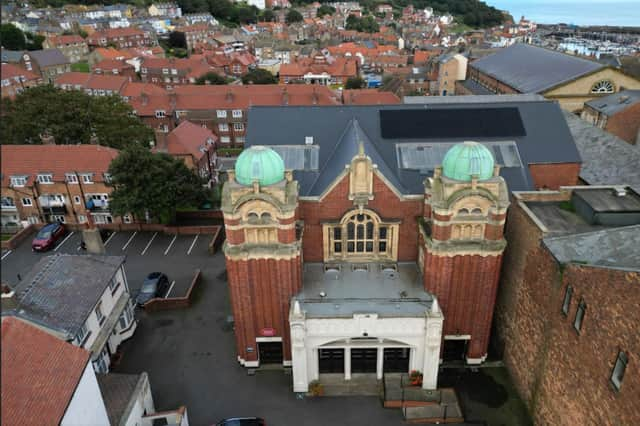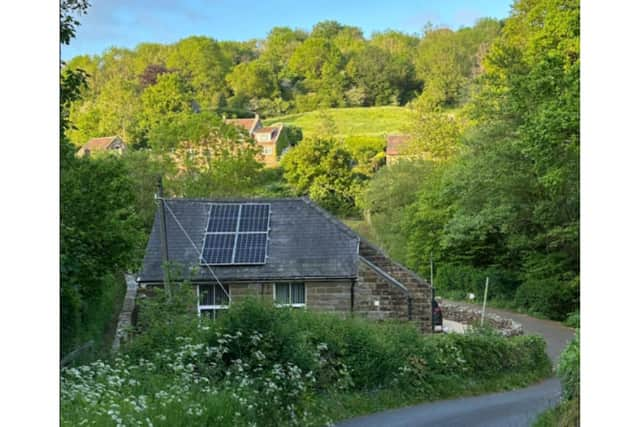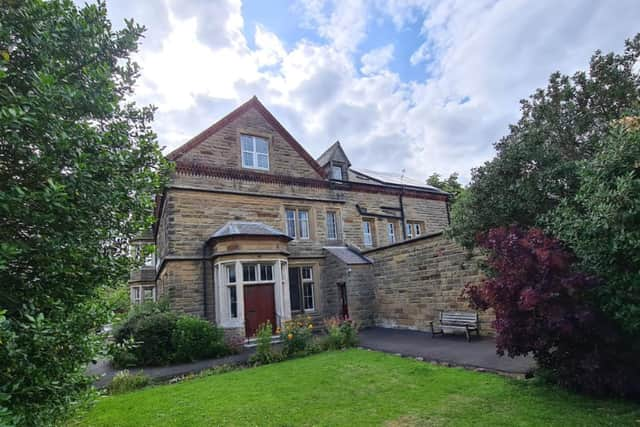Yorkshire coast churches’ solar project which has powered over 1m cups of tea shortlisted for prestigious national award


Robin Hood’s Bay Methodist Church, Queens Street Methodist Church in Scarborough and Littlebeck Methodist Church in Whitby have been part of the pioneering “Tea and PV” scheme which supports installation of solar panels on church buildings.
The initiative is being run by the Yorkshire North & East Methodist District (YNEMD) and is one of just five schemes to be shortlisted in the People’s Energy (UK) category at the 2024 Ashden Awards, for which there were over 500 applications.
Advertisement
Hide AdAdvertisement
Hide AdTim O’Brien, net zero officer for YNEMD, said: “The name of the project, ‘Tea and PV’, tells you a lot about our thinking, PV stands for photovoltaic, which are the solar panels we’ve been putting on churches across our region, but the ‘tea’ part is just as important.


“This project is not just about delivering infrastructure, it’s about delivering a message as well. The Methodist Church is synonymous with cups of tea, so we wanted to have conversations over cups of tea about the sustainable nature of the church, and to communicate it to the users of those buildings.”
“There’s a wide range of understanding about these issues both among out membership and the wider users of our buildings. Around a quarter of a million people who are not members of the Methodist Church use our buildings in our district alone. That’s an awful lot of people coming through our doors from all walks of life.
“Some are more informed about these topics than others but the point of ‘Tea and PV’ is to give everyone a chance to talk about the changes and move towards a sustainable future together.”
Advertisement
Hide AdAdvertisement
Hide Ad“In the 19th century the Methodist Church was known for its social activism, working in areas perhaps other churches didn't go among the poor, the working class, and immigrants.


“My vision is that in the 21st century we're known for our environmental activism. I think it’s a core mission for all faith groups that they should see this as a matter of justice, in the sense that we are producing carbon and other people are suffering because of it.”
“At one of our churches one member couldn’t see the point in the solar panels. Her grandson happened to be picking her up from an event and he saw the panels and the display in the church showing how much energy they were producing.
“He said ‘this is amazing’ and was impressed that the church had taken these steps. Suddenly his grandmother saw the point of it and went from being sceptical that we were wasting money to seeing the value.
Advertisement
Hide AdAdvertisement
Hide Ad“It’s lots of little conversations like that, which we don’t often hear, where we can have an impact, and I think that’s why this scheme is up for such a prestigious award.
“We should be an exemplar to the communities around us, big or small, it’s important that we are doing something and playing our part.”
Littlebeck is the smallest energy producer of the churches involved in the scheme and Portholme Church in Selby the biggest. Littlebeck has produced 200kWh, enough for around 8,300 cups of tea, while Queens Street has made enough for over 100,000 cups of teas (2,480kWh) and Robin Hood’s Bay has produced enough for over 135,000 cups of tea (3,250kWh).
The Ashden Awards will be held on Thursday June 27 and if they win the People’s Energy (UK) category, YNEMD will be given a £10,000 prize which will be invested back into community schemes.